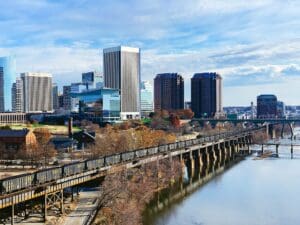By Monica Nickelsburg
See original post here.
Riko Niyomwungere was working multiple jobs to pay for college when he was selected to receive $500 a month with almost no strings attached.
The cash allowed him to stop working, start paying off credit card debt, and focus on pursuing his computer science degree at North Seattle College.
His grades improved, and so did his outlook on life.
Niyomwungere was one of about 100 people selected for a 10-month “Guaranteed Basic Income” pilot in King County that launched in the fall of 2022. The Workforce Development Council of Seattle-King County ran the experiment and just published a report on how it affected participants’ lives.
“You would think that tomorrow is always filled with so many opportunities for every single person, but it’s different when you’re thinking about how you could potentially live tomorrow better versus how you can make it to tomorrow,” he said. “Life is brighter.”
The monthly payments from the GBI pilot appeared to help participants land jobs and better wages. Participants’ employment jumped from 37% to 66% by the end of the program, according to an evaluation by the research firm Applied Inference.
Though it might sound counterintuitive for free cash to compel people to work more, it’s a common finding in basic income experiments. The theory is, when people have a financial cushion to cover urgent needs — like fixing a broken down car or securing child care during a job interview — they can focus on addressing longer-term issues in their lives.
For Niyomwungere, that meant investing in his education, so he can secure a higher-paying job in tech. As one of eight children, from a household with only one working parent, he’s relied on a combination of working and financial aid to pay for school.
“Five hundred dollars, especially for someone like me, it’s a huge lump of sum of money,” he said. “To expect that on a monthly basis is just inconceivable.”
The Workforce Development Council worked with other nonprofits and community groups to select participants affected by poverty for the pilot. It was funded by the Washington State Employment Security Department, King County, and Chase Bank.
Beyond employment gains, the number of participants with some savings increased from 24% to 35%. Among participants with children, that number went from zero to 42%. The number of participants who reported being able to “always or almost always” pay their bills on time also jumped.
There was only one requirement. Participants had to check in monthly with a case worker. Niyomwungere said that was crucial to the success of the program.
The report echoed that sentiment, noting all participants found the check-ins “helpful and encouraging.” Those check-ins “enabled case managers to detect and address barriers earlier” than they may have without that increased communication.
The idea of guaranteed or universal basic income has been gaining popularity in recent years as a tool to alleviate poverty. Experiments have been run across the U.S. with similar results to King County’s pilot. But there are also critics who say the policy encourages dependence on the government and contributes to inflation.
“Our basic concern with this program would be the way that it encourages people in a state of dependency,” said Paul Guppy, vice president of research for the Seattle-based Washington Policy Center. “It’s just handing out payments directly from the government, and it doesn’t do anything to address the structural costs that working families and poor people face every day, specifically our regressive tax system. So the government is handing people cash to meet expenses, which in many ways are created by other government policies.”
Some see the government relief checks that went out during the pandemic as the first broad experiment with universal basic income in the U.S. Guppy said he believes those payments contributed to historic rates of inflation, though there is still debate over how related the two are, given the unprecedented circumstances affecting the economy at the time.
“The unique thing about the Covid payments was that the crisis we were all living through was itself caused by government policy, so when the government passes a rule that says you’re not allowed to go to work, you’re not allowed to have income, then providing people with temporary support in the meantime makes sense,” he said. “That still results in inflation, especially when the crisis is over.”
Despite its skeptics, the Workforce Development Council said the pilot is further proof that basic income can help address some structural causes of poverty.
The organization is already running another basic income pilot, and has two more planned for the future at different payment amounts.





















